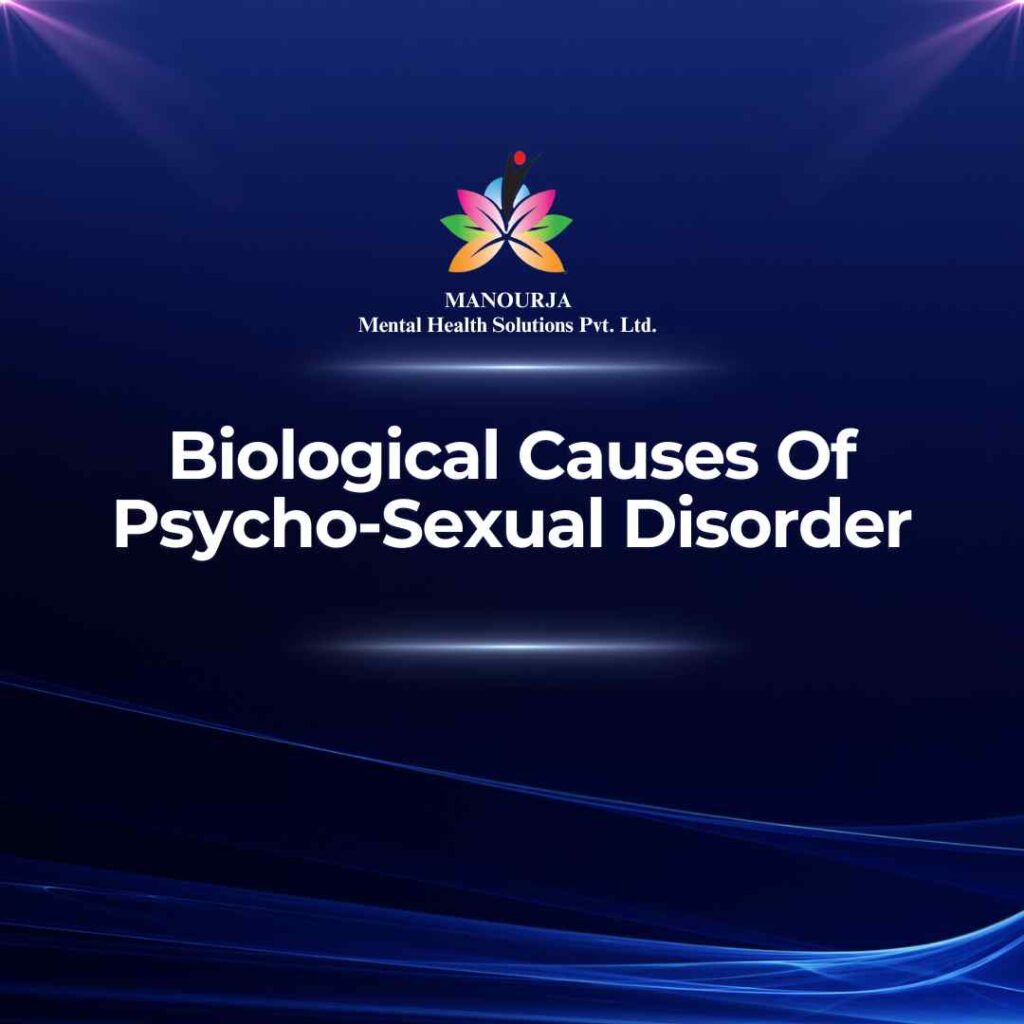Biological Causes of Psycho-sexual Disorder

Hormonal Imbalances
- Hormones play a pivotal role in regulating sexual function. Testosterone, for instance, is crucial for libido and sexual function in both men and women. Low levels can lead to decreased interest in sex and difficulties in achieving arousal or erection.
- In women, estrogen and progesterone are key for sexual health, influencing libido and vaginal health. Fluctuations or deficiencies, which may occur especially during menopause, can result in decreased lubrication and libido.
- Prolactin, typically elevated in certain health conditions like prolactinoma (a type of pituitary tumor), can suppress other hormones necessary for sexual function.
Neurological Issues
- The nervous system is integral to initiating and controlling sexual arousal and orgasm. Disorders such as multiple sclerosis, spinal cord injuries, or any significant peripheral neuropathy can disrupt these essential nerve pathways.
- Damage to specific areas of the brain, due to injury or diseases like stroke, can alter sexual behavior and responsiveness.
Vascular Health
- Good blood flow is essential, especially for male erection. Vascular diseases like atherosclerosis or complications from diabetes can impair blood flow to the genitals, leading to difficulties in achieving or maintaining erections.
- Women may experience similar issues with blood flow that affect genital arousal and lubrication.
Anatomical Anomalies
- Structural abnormalities or injuries to the genitals or pelvic area can result in pain during intercourse or other sexual dysfunctions.
- Surgeries involving the pelvic floor, prostate, or other nearby structures can occasionally lead to nerve damage that impacts sexual function.
Impact of Medications
- Various medications can interfere with sexual function. This includes antidepressants (particularly SSRIs), blood pressure medications, and others like antipsychotics and prostate treatment drugs, which can affect libido and performance.
- Regular use of substances like alcohol and recreational drugs can diminish sexual performance. Over time, this can evolve into more persistent sexual dysfunction.
Endocrine Disorders
- Beyond hormones directly linked to sexual function, other endocrine issues like thyroid disorders, diabetes, and adrenal gland issues can disrupt the broader hormonal environment that supports normal sexual health.
Genetic Factors
- Some genetic conditions may predispose individuals to sexual dysfunction. These can manifest as direct physiological challenges or more subtly through hormonal impacts.
In understanding and treating psychosexual disorders, it’s important to consider these biological factors in conjunction with psychological and social elements. Treatments often involve a combination of medication, hormone therapy, counseling, and sometimes surgery, tailored to address specific underlying causes while supporting overall well-being and relationship health.
At MANOURJA, we believe in the transformative power of counseling. Our experienced therapists offer a safe and supportive space where you can explore your thoughts, emotions, and challenges. Through personalized counselling sessions, we’ll work together to develop coping strategies, build resilience, and achieve lasting positive change. Discover the path to a healthier, happier you with MANOURJA counselling services.
MANOURJA Rehabilitation Services
At MANOURJA, we’re dedicated to helping you in rebuild your life, after difficult times. Our rehabilitation services focus on understanding what you need to move forward, whether you’re recovering from addiction, trauma, or any psychological – social challenges. We create personalized plans, that are all about helping you, regain your strength and find hope again. With a caring team by your side, you’ll have the support to make real progress and take steps toward a brighter, healthier future.
